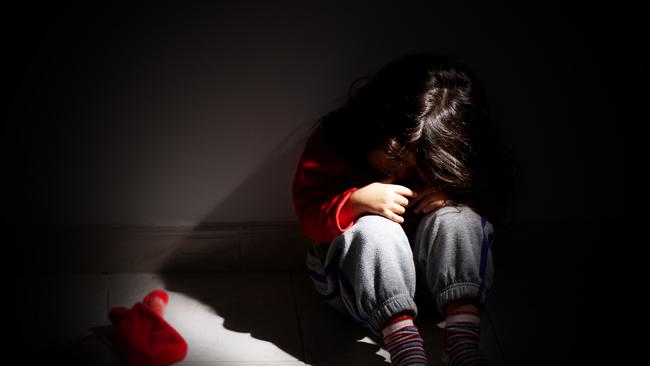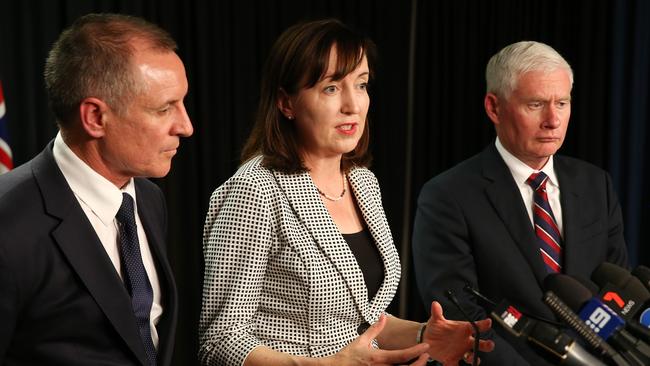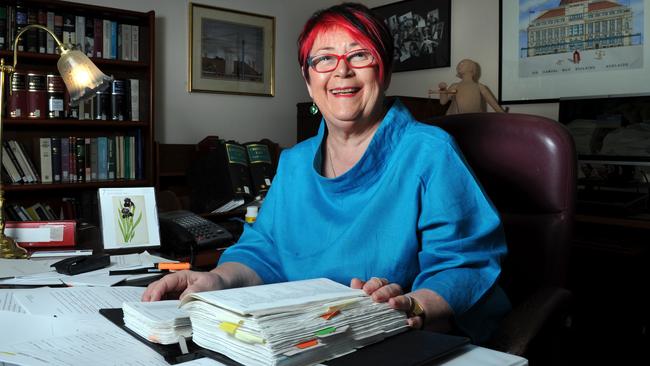Royal Commission report into child protection reveals why foster carers are leaving system through lack of state support
THE Royal Commission’s report into the child protection system said children in state care often “remain psychologically caught between two families” after being removed from unsafe birth parents and placed with a foster family.
SA News
Don't miss out on the headlines from SA News. Followed categories will be added to My News.
- Reaction from three agencies Nyland Royal Commission report
- Families SA workers fear new department won’t recruit enough staff
- MAIN REPORT: System that failed our children
THE call came on a Tuesday afternoon — the decision to take their foster daughter was made the next morning.
Four-year-old Grace* had become part of Tom* and Cathy’s* family, but now she was to be returned to her birth mother. “Before accepting the (foster) placement we were so categorically clear (with Families SA) that we only wanted a long-term placement,” Tom told the Sunday Mail.
“We had said no to two other foster children because they were short-term arrangements and we didn’t want to lose a child after becoming attached.
“Now we were told to prepare ourselves for someone to come and collect Grace and take her away the next day.
“She just completely vanished ... with no time to prepare for it.”
In less than four minutes, a decision was made in the Youth Court that ended a long-term stable foster care placement. Grace was returned to her biological mother as part of Families SA’s reunification work.
Royal Commissioner Margaret Nyland, who delivered her long-awaited report into the child protection system last week, acknowledged that many foster parents struggled with “the challenge of committing themselves to the care of a child who could be removed ... at any point”.

The former Supreme Court judge said children in state care often “remain psychologically caught between two families” when they are removed from unsafe birth parents and placed with a foster family.
The system is in desperate need of more people willing to take an at-risk child into their home, but there are far more carers fleeing the system than new people signing up.
In 2014-15, Families SA registered 82 new foster households, but lost 138.
The previous year 145 new carers signed up but 241 left.
Over the same period foster carer numbers increased in Victoria, Queensland and the Northern Territory.
South Australian Child Development Minister Susan Close conceded that our system must treat foster carers better if we are to grow their ranks and reduce the number of children in state-run homes or motel rooms.
To that end, the Government plans to launch a recruitment drive in the wake of Ms Nyland’s report.
“When the (foster care) system was first established, usually there was someone at home with the children and then maybe they could have one or two more (foster) children in the household,” Dr Close said.

“Now, with so many households being under pressure to work, that changes the calculation for families about whether they’re able to open their homes to more children.”
Ms Nyland’s 850-page report makes recommendations to encourage more foster carers, including:
PROVIDING carers with more information about the children they are taking on.
SETTING up a centralised system for complaints
FUNDING an advocacy body to support carers.
REVIEWING the payments made to carers, to increase payments where children have complex needs or the carer has extra training in child development or other relevant fields.
PROVIDING training in recognising and handling trauma-related behaviour in children.
SETTING up a panel to consider cases where a child is removed from a long-term foster family.
TRACKING whenever a prospective foster carer is rejected or withdraws from the application process.
Foster carers have welcomed many of Ms Nyland’s recommendations but their peak body says there is still a “lack of legal rights and recognition of carers”.
“Connecting Foster Carers (SA) cannot in clear conscience encourage families to be recruited into a system where they have no legal rights or status,” said spokeswoman Jo Jarvis.
For those children who remain in a foster family long-term there is an option for carers to gain greater legal rights, known as Other Person Guardianship (OPG).

The Government has been trying to encourage more guardian arrangements but has been criticised by Ms Nyland for slow progress.
She notes the waiting time to gain guardianship had reached two years and both guardianship and adoption had been “seriously neglected” by authorities.
She recommended:
FAST-TRACKING OPG where children have been with the same foster carers for two years.
RESTRICTING the ability of birth parents to deny their child being put on an OPG order.
SETTING up a panel to consider applications for OPG.
Ms Nyland also recommends considering adoption in cases where it is in the best interests of the child. But it should not be used “to satisfy the desire of adults to create or expand their families”, she said.
*Not their real names
STATE CHILD GUARDIANSHIP PLACEMENTS
Children under the guardianship of the state can live in a range of placements.
About 290 are currently supervised by paid staff in state-run homes and 190 live in emergency accommodation, such as motel rooms.
The majority live in “family” style placements, but the system is in need of more carers.
KINSHIP CARE describes when a child is placed with a relative, such as a step-parent, brother, sister, uncle, aunt, grandfather or grandmother.
A kinship carer could also be someone known to the child, such as a long-time family friend or member of their cultural community.
Kinship care is the most common form of family-based care for children removed from their parents.
Of the 3234 children in state care as of June 30 this year, 1462 children were living in kinship care.
FOSTER CARE describes when a child is placed in the household of registered people who receive some financial reimbursement.
There were 1260 children living with foster carers as of June 30.
Recruitment, assessment, training and support of foster parents in South Australia is managed by 12 non-government agencies. Each agency is funded through a service agreement with Families SA.
Each agency covers a different geographical area.
A prospective foster parent approaches the agency of their choice and is recruited, trained and assessed before final registration is approved by Families SA.
Foster parents are paid a $155 a week to care for an infant, up to $248 a week for caring for a 14-year-old. These rates are equal to or lower than those paid in all other states and territories.
Not all foster carers provide long-term care. There are varied roles, such as short-term emergency care to a child for a night or a week or respite care for a short period to give another foster family a break.
OTHER PERSON GUARDIANSHIP (OPG) arrangements offers guardians more legal rights than foster parents, but fewer than adoption, by shifting the legal parenting rights for a child from the state to the guardian.
Guardians are able to make decisions about most aspects of a child’s life, such as education and schooling, haircuts, medical procedures, and school excursions.
They can also make decisions about interstate or overseas travel, provided that such arrangements do not contravene any fixed contact arrangements with birth parents.
Any continuing involvement with Families SA by the family is on a voluntary or as-needs basis.
Children still have access visits with their biological parents, but the guardians benefit from a greater degree of certainty that the child will remain in their care over the long-term.
A child is usually placed on an OPG order until the age of 18.
In 2014-15 SA had the lowest rate of OPG arrangements of any state.
The number dropped from 27 guardians in 2012-13 and 29 in 2013-14 to just three in the first six months of 2014-15.
ADOPTION confers full parenting rights to a child’s new carers and severs the legal connection with a child’s birth parents.
Adoption of South Australian children is technically legal but very rarely used.
There was only one “known child adoption” in SA in 2014-15 — which could have been a carer, step-parent or other relative.
Across the nation, there were 292 adoptions registered in 2014-15 — the lowest number on record, and a 74 per cent fall from 1142 in 1990-92.
However, there has been an increase in adoption of children from state care — 94 in 2014-15,
the highest figure in a decade.
Of those, 87 occurred in New South Wales.


